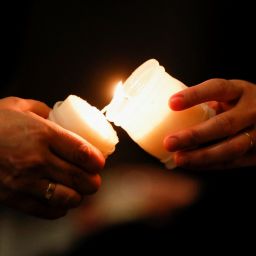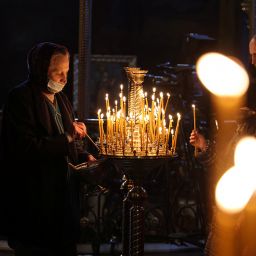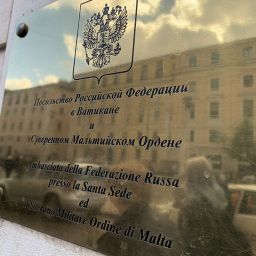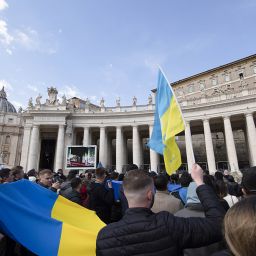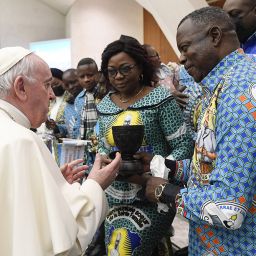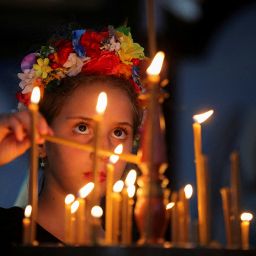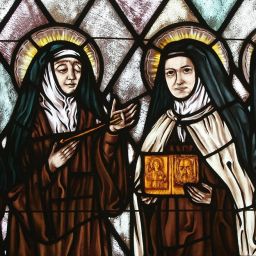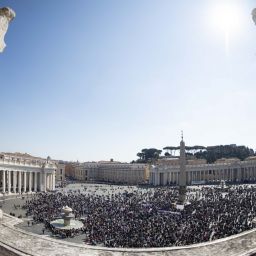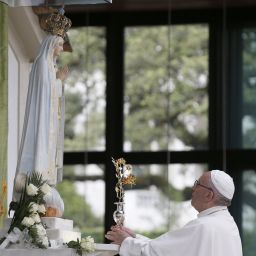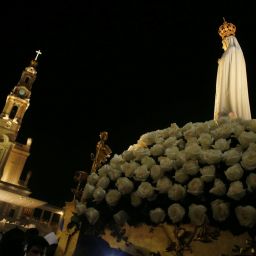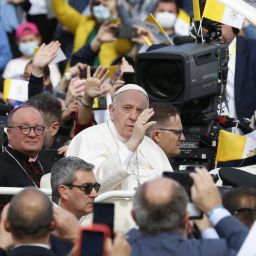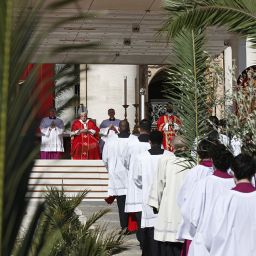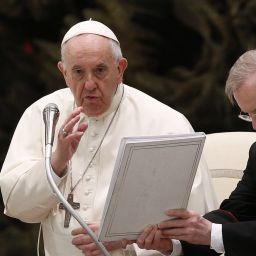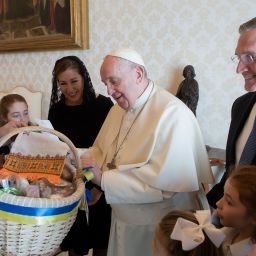By Cindy Wooden
Catholic News Service
VATICAN CITY — A few hours after he railed against unjust immigration policies at his general audience, Pope Francis and community organizers associated with the West/Southwest Industrial Areas Foundation returned to the theme of welcoming and integrating migrants.
“For us, baptism does not stop at the border,” Joe Rubio, national co-director of IAF for the west-southwest region, told Catholic News Service Aug. 29.
In 20 U.S. dioceses, the foundation and its partners run “Recognizing the Stranger,” a leadership development program that helps immigrants and members of their new parishes develop stronger relationships and work together for the good of their community.
Pope Francis had dedicated his entire general audience talk Aug. 28 to the theme of migration and the obligation to help those seeking safety, freedom and a better life for themselves and their families. He met the community organizers later that day.
While Rubio and his colleagues were in Rome, they also met with Emilce Cuda, secretary of the Pontifical Commission for Latin America, to continue discussions on how their organizations could work with similar groups supported by the Latin American bishops’ council, known as CELAM.
“We see that the immigration phenomenon in the Americas is something that is the joint responsibility of the church in North and South America,” Rubio said, so finding ways to work together is something they are exploring. And, Rubio added, there seem to be “similarities between our style of organizing and how the church works, particularly in the poor communities in Latin America.”
The audience with the pope Aug. 28 was the leaders’ third private meeting with Pope Francis, and they left with a gift that doubled as homework: Near the end of their discussion, the pope asked an aide to get each of the organizers a copy in English or Spanish of his three encyclicals and three of his apostolic letters.
They had told the pope they were studying “Fratelli Tutti, on Fraternity and Social Friendship,” and that they and the people they train read “Power and Responsibility” by Father Romano Guardini, one of the pope’s preferred theologians.
While Pope Francis praised the community organizers for being concrete, for looking around them, listening to people’s needs and then collaborating to find solutions, Rubio said he also told them, “How good it is that you are reading Guardini.”
Joining Rubio in recounting their meeting with the pope to CNS were: Tim McManus, a senior organizer working in Texas, California and Arizona; Elizabeth Valdez, a Houston-based organizer; Liz Hall, lead organizer in the San Francisco Bay Area; and Jorge Montiel, an organizer in Colorado and New Mexico.
Each person at the meeting, they said, had a chance to share his or her personal story with the pope. Montiel said one of the organizers told the pope how she did not want to get involved in community organizing because her experience was that politics always ends up being about power, and power corrupts. But, in the end, the killing of a 6-year-old girl in her neighborhood convinced her to act.
In response, Montiel said, Pope Francis told them, “Faith that does not lead to the work of justice is not real faith.”
In “Fratelli Tutti,” Montiel said, the pope talks a lot about the importance of politics in serving the common good, “but he is way more cautious when talking about power.”
But, Pope Francis told the group, “Power is ‘fugitive.’ You either take it or it disappears. Now, it’s more comfortable if you let it go. If you take it, it’s more work because you have to be responsible,” Montiel said the pope told them.
Cutline for featured image: Pope Francis poses for a photo with community organizers from the West/Southwest Industrial Areas Foundation after a private meeting in the Domus Sanctae Marthae at the Vatican Aug. 28, 2024. (CNS photo/courtesy of IAF)

